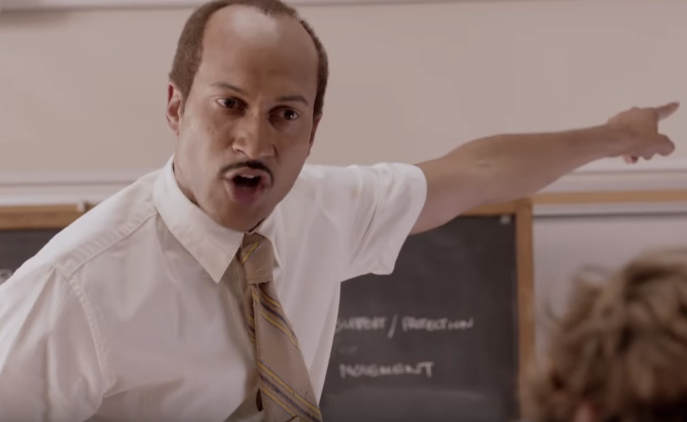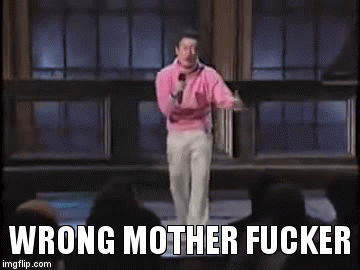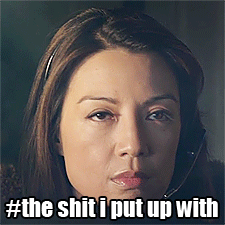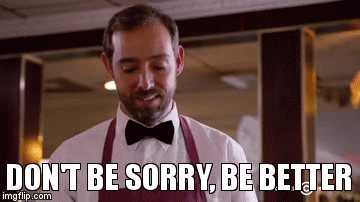
I’ve always wanted my first YouTube critique to be of Ken Tanaka’s “What kind of Asian are you?” video that went viral a few years ago but never had the time until recently. I started to map out my opinions on that topic but then this popped up on my newsfeed and I just couldn’t ignore it.
So Ken’s going to have to wait. All I’ll say for now is, did you know the director/host/YouTube channel person is a white guy named David Ury who plays a “character” named Ken Tanaka that pretends to be person adopted by a Japanese family in Japan?
Anyway, this is hard for me because I am friends with a few of the actors and as participants in the skit, I would expect they would all have the same view as the creator. I’ll try my best to analyze the content of the video and not the players in it. Here’s to hopefully not burning any bridges.
So let’s get the superficial things out of the way. For those of you who have no clue what I’m referring to, recently there was a skit made by Chad Wild Clay. It attempted to parody Key and Peele’s substitute teacher skit. On the surface, both videos have a substitute teacher mispronouncing the names of the students. Scene for scene the videos are identical and from the outside looking in. Essentially, they are the same skit with different faces. However, when you dissect and juxtapose the two, things are egregiously different. I would even be so bold as to call one skit… (A pause for dramatic effect)
RACIST.
Yeah that’s right, I said it. The big bad! The word that makes everyone roll their eyes; they are so tired of it. If you don’t know where I was going with this, now you know.
“But Eric, how is one racist and the other not racist? They’re the same aren’t they?”

And here’s why.
Why Key & Peele’s Skit Works
The question you should really ask yourself is why are you laughing at the video in the first place? The original video is ironically poking fun at what American society has deemed the standard, i.e. names like Blake, Denise, Aaron, etc.
The irony is what makes it funny.
Mr. Garvey is a Black man who has taught at “inner city schools.” He mispronounces the names of the students in his all-white class, saying their names as if they were stereotypical Black-sounding names. Because Garvey is a Black man who taught at an “inner city school” (read, predominantly Black school), his pronunciation of these white-sounding names with the inflections of Black-sounding names is what seems so outrageous and, well, funny. The scene is ironic, and therefore funny, because as an audience, we 1) know he is mispronouncing the names and 2) don’t expect him to mispronounce such “normal” names. This is where K & P’s social commentary goes a little deeper. Through the character of the substitute teacher they challenge the usual norm — that white-sounding names are somehow self-explanatory and obvious and that black-sounding pronunciations are somehow absurd or ludicrous.
And maybe some of us miss the point that many white folks expect Black names to be pronounced a certain way, so that even when a Black person has a “white sounding” name, they are met with surprise.
For Black people, this might be the equivalent of the Asian American experience of getting the, “Oh, you don’t look like you’d be from Minnesota.” Black people with names like Jessica or … Timothy, for example, might get the “Hmm, you don’t look like a [insert non-stereotypical Black name, aka a “white” name here].”
Furthermore K & P are flipping the usual “white substitute teacher savior” story where a white teacher comes to an all black school and inspires his black troubled students to become better people i.e. films such as Dangerous Minds and The Substitute. Maybe K & P should come out with a hit single called “Cracker’s Paradise”…
One thing that makes this skit so funny is its sarcasm. Did you realize it was sarcastic? It points out how a situation which seems normal, especially to white people, can be made ridiculous. Through what seems like an absurd scene, we are forced to see how racist the white norm can be. Because we are so exhausted by how ridiculous white norms can be, all we can do is throw up our hands and laugh at this point. Our commentary on race relations, no matter how humorous, must serve a purpose. In this case, and in the case of my “cracker’s paradise” comment, the commentary on race relations is shown by taking our sarcasm to the extreme.
(Why was cracker’s paradise sarcastic? If you didn’t laugh, you don’t get the point… or you were born in the 2000s. The reason that comment was sarcastic, and funny, is that not all white people are Crackers, but when people want to make fun of white people, they call them Crackers. This doesn’t hurt white people the way calling all black people gangsters, organgstas, does though)
Why Chad’s Skit Doesn’t
In juxtaposition, Chad’s video does the very opposite of what K & P’s video is doing. Instead of normalizing the Vietnamese experience, Chad’s video reinforces the normalcy of the white experience.
When I heard him mispronouncing the names I couldn’t help but hear an imaginary gong being rung in the background a la “Long Duk Dong” from Sixteen Candles. The white teacher is the power structure that doesn’t get challenged by the Vietnamese students but is instead reinforced. He is able to berate, deride, and mock the names that are not normal to him. When the students show any form of contradiction they are punished. The white guy is large and in charge and stays in charge. Is that ironic? No not really because in our society white people already are in charge. Its him making us conform to the white standard again instead of the white people conforming to a different standard.
What really alarmed me is the sexualization of the Vietnamese names. It has been an issue Vietnamese/Asian American women have faced since then. Asian women are constantly subjected to sexualized tropes in pop culture. This has created a exoticized perception of Asian women’s sexuality.
Nearly everyone has either seen or heard of the “Me love you long time” scene from the film Full Metal Jacket. It is ubiquitous in American pop culture and was the first domino (second domino being the musical Miss Saigon) in an onslaught of references to Vietnamese women as objects. Chad emphasizes this history with the fact that the substitute teacher is in G.I. garb.
He is literally calling one of the students “My Ho” (spelled Mai Ho). He calls a Vietnamese woman HIS PROSTITUTE in G.I. attire.

What the Phuc is that?! (See what I did there?) Literally in mainstream culture Vietnamese Americans are 2 things, Pho and the Vietnam War.
He is doing all of these over the top racist things and we know they’re racist. And since he never answers for his racism, it becomes just racist instead of social commentary.
What They Could Have Done
The video just lacks originality and relies too heavily on exhausted gags. The video should have been a Vietnamese teacher saying the names of white people wrong so it follows the same ironic arc as K & P’s skit. If you do that, please don’t dress up as the Vietnamese teacher, that’d be Yellowface so please avoid that pitfall. You can be one of the students! It probably won’t be as funny as K & P’s skit, but that’s the price of doing a parody of a comedy.
Honestly I would just recommend not doing a skit involving a marginalized group you don’t identify with unless it’s empowering the group without usurping their experience. (ahem David Ury)
At The End of the Day
What upsets me most is that a white person is usurping the experience of people of color who have names that seem “different” than the norm. (And white folks with different names too!) We are constantly in situations where we accept the mispronunciations by our peers for convenience sake. I personally mispronounced my own name up until 6th grade because I accepted the wrong pronunciation of the teacher, they made it seem like there was a right way to say it in English.
Well this, I don’t accept. Chad’s video is climbing in views and by the look of my newsfeed will be seen by every Vietnamese person I know before it’s even a week old. The video starts with Chad explaining that a person involved in the production is Vietnamese. That means it’s not appropriation, right? Well, no… to me it is most definitely still appropriation. The channel belongs to the white guy, the script is written by the white guy, and the white guy is getting all the credit.
Even if the YouTube channel reflected an even partnership between the white guy and the Vietnamese person, (who apparently says reinforcing how white people sexualize and insensitively mispronounce Vietnamese names is okay) I still wouldn’t be on board. I would still consider this appropriation.
Just because your person-of-color friend said you’re not racist, doesn’t mean you’re not racist; it just means they don’t know what they’re talking about.

(Special thanks to my sister Cindy for editing and contributing a lot, like way way a lot)

